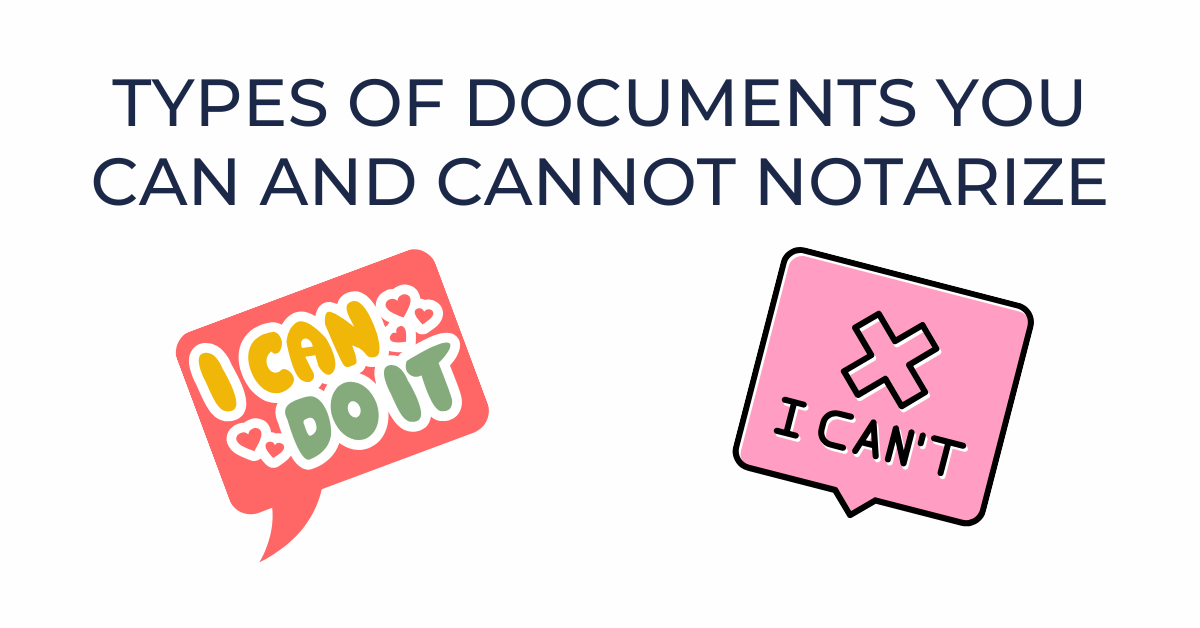
Revised 7/17/25
Notaries in Texas must juggle not only the mechanics of notarization but also strict rules about the types of documents they can notarize and the protections they must include when advertising.
✅ Documents You Can Notarize
- Most affidavits, acknowledgments, oaths, and jurats.
- Non-recordable documents like internal company forms, school records, and letters.
- Handwritten documents—as long as the signer appears in person and proper procedures are followed.
❌ Documents You Cannot Notarize
- Recordable documents: birth certificates, marriage licenses, deeds, death certificates, etc.
- Blank forms—those with empty fields—pose a serious fraud risk and are not allowed.
📚 You Must Keep a Record Book
- Texas law requires that notaries maintain a detailed journal of all notarial acts.
- Entries should include the date of each instrument notarized, the date of the notarization, the signer’s name and address, how identity was verified, document description, and land-related details if applicable.
- You can’t record ID numbers (like driver’s license). The signer’s address is enough.
- These entries are public records. Notaries must provide certified copies upon request.
Quick Reference for Texas Notaries
| Issue | Best Practice |
| Recordable Document? | ❌ Do not notarize. Refer the signer to the appropriate issuing agency. |
| Unsigned or blank form? | ❌ Do not notarize until all appropriate blanks are filled and the document is complete. |
| Handwritten document? | ✅ You can notarize if the signer is present, identity is verified, and a proper notarial certificate is attached. |
| Missing notarial certificate? | ❌ Do not proceed. Ask the signer what type of notarization they need (e.g., acknowledgment or jurat). Attach or complete the correct certificate before notarizing. |
📘 Want a reliable, go-to resource for everything you need to know as a Texas notary? Get your copy of the Texas Notary Handbook—an essential guide that covers rules, prohibited acts, required certificates, and more. It’s one of the best way to ensure you’re always performing your duties by the book.
Related Article(s)
The Difference Between Acknowledgments and Jurats
What to Do When the Notarial Certificate Is Missing?
Notarial Certificates – Scrutinize Every One!
When Can a Notary Use Personal Knowledge to Identify a Signer?
Top Ten Mistakes That Notaries Make
Can a Notary Notarize a Family Member's Signature?
Notary FAQs: Essential Answers for Everyday Scenarios
How to Avoid Common Mistakes During a Notarization
Does a Notary Need to See the Entire Document When Notarizing?
